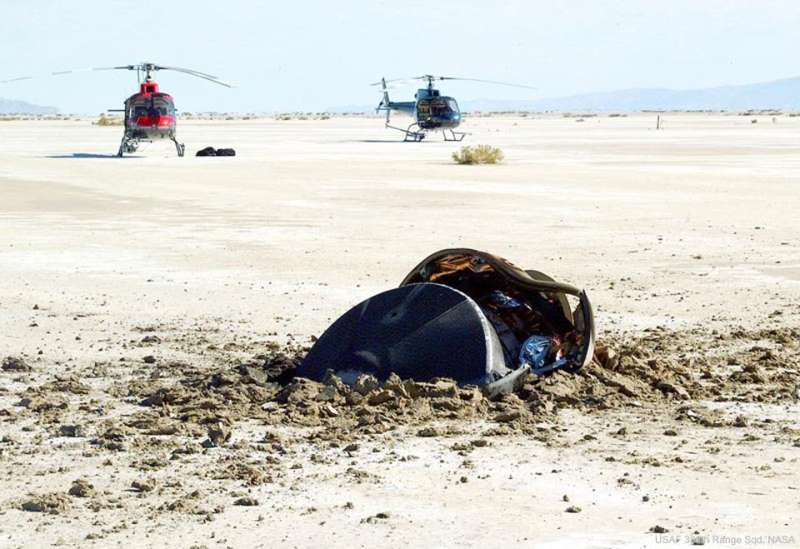Flying Saucer Crash Lands in Utah Desert

Explanation:
A flying saucer from outer space crash-landed in the
Utah desert after being tracked by radar and chased by helicopters.
The year was 2004, and no space aliens were involved.
The saucer, pictured here, was the
Genesis
sample return capsule, part of a human-made robot
Genesis spaceship
launched in 2001 by NASA itself to study the Sun.
The unexpectedly
hard landing
at over 300 kilometers per hour occurred because the
parachutes
did not open as planned.
The Genesis mission had been orbiting the
Sun collecting
solar wind particles that are
usually deflected away by
Earth's magnetic field.
Despite the crash landing,
many return samples remained in good enough condition to analyze.
So far,
Genesis-related discoveries include new details about the
composition of the
Sun and how the abundance of some types of elements
differ across the Solar System.
These
results have provided intriguing clues into details of how the
Sun and planets formed billions of years ago.
Authors & editors:
Robert Nemiroff
(MTU) &
Jerry Bonnell
(USRA)
NASA Web Site Statements, Warnings,
and Disclaimers
NASA Official: Jay Norris.
Specific
rights apply.
A service of:
LHEA at
NASA /
GSFC
& Michigan Tech. U.

